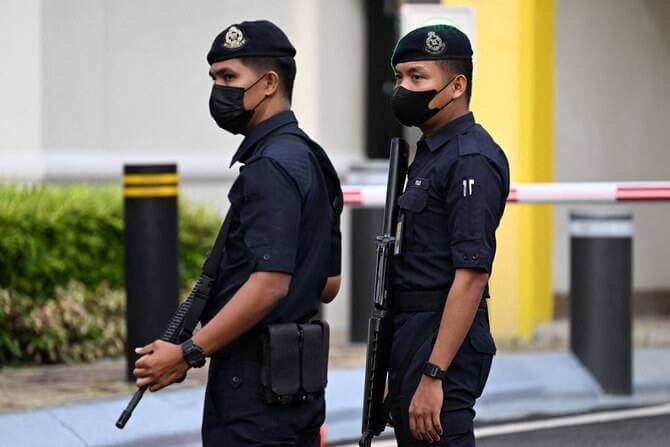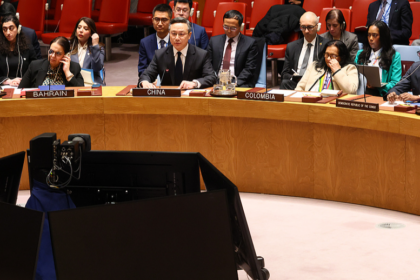Malaysia’s Counter-Terrorism Success: Breaking Up an ISIS-Linked Network Among Migrant Workers
Malaysian authorities have announced the dismantling of a significant ISIS-linked network that operated among Bangladeshi migrant workers, using social media and digital finance to spread extremist ideology and fund terrorism abroad. The operation, which unfolded over several months in 2025, highlights both the evolving tactics of transnational extremist groups and the vulnerabilities within migrant labor communities in Southeast Asia.
- Malaysia’s Counter-Terrorism Success: Breaking Up an ISIS-Linked Network Among Migrant Workers
- How the Network Operated: Recruitment, Radicalization, and Fundraising
- Digital Tools and Financial Channels: The New Face of Extremism
- Arrests, Charges, and Deportations: The Legal Response
- Why Malaysia? The Appeal to Extremist Networks
- Regional and International Implications: The Need for Cooperation
- Lessons Learned: Addressing the Root Causes of Radicalization
- In Summary
This development comes as Malaysia, a Muslim-majority nation, continues to grapple with the legacy of a 2016 ISIS-linked attack in Kuala Lumpur and the ongoing threat of radicalization among its large foreign workforce. The case underscores the importance of robust counter-terrorism measures, digital surveillance, and international cooperation in the fight against global jihadist movements.
How the Network Operated: Recruitment, Radicalization, and Fundraising
The dismantled network, identified in some reports as Gerakan Militan Radical Bangladesh (GMRB), infiltrated Malaysia’s vast community of Bangladeshi migrant workers. Authorities estimate that between 100 and 150 individuals were involved, with 36 Bangladeshi nationals arrested in coordinated operations across the states of Selangor and Johor since April 2025.
According to Inspector-General of Police Mohd Khalid Ismail, the group’s primary activities included:
- Recruiting Bangladeshi workers through social media platforms and encrypted messaging apps such as WhatsApp and Telegram.
- Spreading radical and extremist ideologies, including ISIS propaganda, via digital channels and secret meetings.
- Collecting funds through international bank transfers, e-wallets, and mobile payment apps to support ISIS operations in Syria and Bangladesh.
Police intelligence revealed that the group specifically targeted Bangladeshi laborers working in factories, construction sites, and the service sector. Recruitment often involved an oath-taking ritual known as bai’ah, which signified allegiance to the group’s cause. Members were reportedly required to pay an annual fee—about RM500 (roughly $105 USD)—to support the network’s activities.
Authorities believe the network’s ultimate aim was not to attack Malaysia directly, but to use the country as a base for recruitment, fundraising, and logistical support for ISIS operations abroad. The group also harbored ambitions to destabilize the Bangladeshi government by recruiting and indoctrinating expatriate workers.
Digital Tools and Financial Channels: The New Face of Extremism
The case highlights how extremist groups have adapted to the digital age, leveraging technology to evade detection and expand their reach. The network’s use of social media, encrypted messaging, and digital payment systems made it difficult for authorities to track communications and financial flows.
Investigators traced the group’s online activities to Facebook accounts linked to ISIS propaganda, which were then connected to IP addresses in Malaysia. Encrypted apps like WhatsApp and Telegram were used to coordinate recruitment, hold religious lessons, and organize clandestine meetings. The group’s fundraising efforts relied on international remittance services and e-wallets, allowing them to move money across borders with relative ease.
These methods reflect a broader trend in global terrorism, where digital platforms are increasingly used for radicalization, recruitment, and financing. The challenge for law enforcement is compounded by the sheer scale of Malaysia’s migrant workforce—estimated at over 500,000 Bangladeshi workers, many of whom are undocumented and vulnerable to exploitation.
Arrests, Charges, and Deportations: The Legal Response
The Malaysian police operation unfolded in three phases between April and June 2025, resulting in the arrest of 36 Bangladeshi men aged 25 to 35. The breakdown of legal actions is as follows:
- Five individuals have been charged under Malaysia’s Penal Code for terrorism-related offenses, specifically for membership in a terrorist organization.
- Fifteen individuals with minimal involvement are slated for deportation to Bangladesh.
- Sixteen individuals remain in police custody pending further investigation, with more arrests expected as the probe continues.
Inspector-General Mohd Khalid Ismail emphasized the distinction between minor and major offenders, stating:
“We will deport those with minimal involvement back to their home country, while those with greater involvement will be charged under Malaysian laws.”
Authorities have not disclosed the total amount of funds raised by the network, but the use of annual membership fees and digital donations suggests a well-organized financial operation. The case is being prosecuted under Chapter VIA of the Penal Code, which covers terrorism-related activities, and the Security Offences (Special Measures) Act (SOSMA).
Why Malaysia? The Appeal to Extremist Networks
Malaysia’s status as a regional economic hub and its reliance on foreign labor make it an attractive target for extremist groups seeking to exploit migrant communities. The country’s large population of Bangladeshi workers—many of whom face economic hardship, social isolation, and limited oversight—creates fertile ground for radicalization.
Authorities stress that Malaysia itself was not a direct target of the group’s planned attacks. Instead, the country served as a recruitment and fundraising base, with the ultimate goal of supporting ISIS operations in Syria and Bangladesh. This strategy reflects a broader pattern in which Southeast Asian nations are used as logistical hubs by transnational terrorist organizations.
Home Minister Datuk Seri Saifuddin Nasution Ismail highlighted the government’s commitment to preventing Malaysia from becoming a haven or transit point for foreign extremist movements. He praised the professionalism of the Royal Malaysian Police and the Special Branch’s intelligence efforts, stating:
“The success of this operation demonstrates the efficiency and professionalism of Malaysia’s security forces, particularly the police, in safeguarding the nation’s sovereignty, harmony, and public peace.”
Regional and International Implications: The Need for Cooperation
The dismantling of the ISIS-linked network in Malaysia has significant implications for regional security and counter-terrorism efforts. The case underscores the importance of:
- Enhanced digital surveillance and monitoring of online radicalization channels.
- Stronger engagement with migrant communities to build trust and resilience against extremist recruitment.
- Closer cooperation between Malaysian and Bangladeshi authorities to track cross-border financial flows and disrupt terrorist networks.
- International intelligence sharing to prevent Southeast Asia from becoming a transit hub for foreign fighters.
Experts warn that the use of encrypted communications and digital finance poses ongoing challenges for law enforcement. The case also highlights the need for more robust background screening and monitoring of foreign workers, particularly in industries with high concentrations of migrants.
Lessons Learned: Addressing the Root Causes of Radicalization
While the immediate threat posed by the dismantled network has been contained, the underlying factors that enable radicalization among migrant workers remain. Economic hardship, social isolation, and lack of community support can make foreign laborers susceptible to extremist messaging.
Authorities and civil society organizations are urged to invest in outreach programs, language and integration support, and education initiatives that counter radical ideologies. Building trust between law enforcement and migrant communities is essential to encourage reporting of suspicious activities and prevent future recruitment efforts.
The case also serves as a reminder that terrorism is a global phenomenon that transcends borders. As extremist groups adapt to new technologies and exploit vulnerable populations, governments must remain vigilant and proactive in their counter-terrorism strategies.
In Summary
- Malaysian authorities dismantled an ISIS-linked network operating among Bangladeshi migrant workers, arresting 36 individuals in a series of operations since April 2025.
- The network used social media, encrypted messaging apps, and digital payment systems to recruit members, spread extremist ideology, and fund ISIS operations in Syria and Bangladesh.
- Five suspects have been charged with terrorism offenses, 15 will be deported, and 16 remain under investigation, with more arrests expected.
- The group exploited vulnerabilities within Malaysia’s large migrant labor force, highlighting the need for enhanced surveillance, community engagement, and international cooperation.
- Authorities stress that Malaysia was not a direct target, but served as a base for recruitment and fundraising for foreign terrorist activities.
- The case underscores the evolving tactics of extremist groups and the importance of robust counter-terrorism measures in the digital age.












